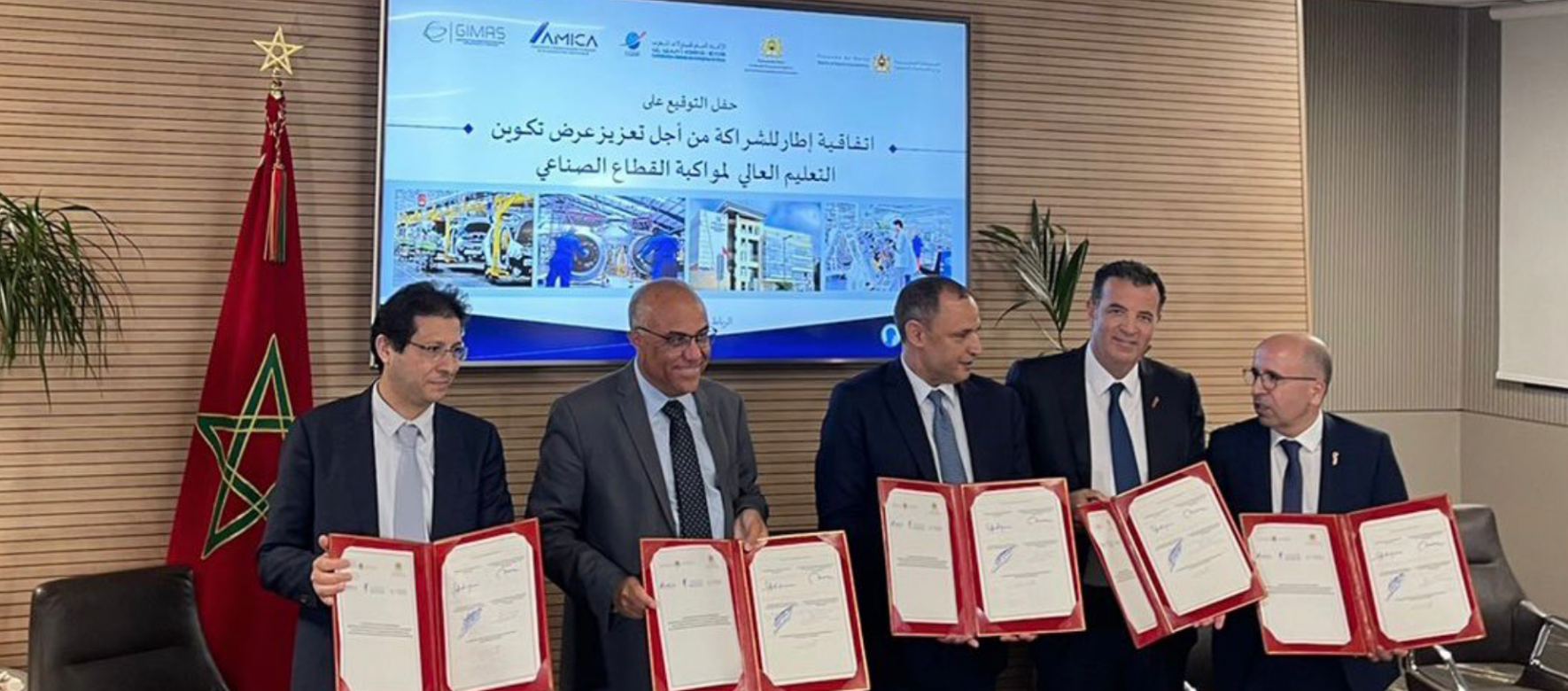The EBRD financed a study carried out by the Moroccan government and employers' associations, which revealed the shortage of engineers and technicians in the country. To make up for it, the partners have just set up a training strategy.
The Government of Morocco, represented by the Ministry of Higher Education and the Ministry of Industry and Trade, has signed a partnership agreement with three employers’ associations, namely: the General Confederation of Moroccan Enterprises (CGEM), the Association Association for Automotive Industry and Trade (AMICA) and the Grouping of Moroccan Aeronautical and Space Industries (GIMAS).
The framework agreement aims to strengthen the training of engineers, middle managers and senior technicians in the field of industry and in particular the automotive and aeronautical sectors. According to the Minister of Higher Education, Abdellatif Miraoui, “the purpose of this structuring project is to train high-quality human capital that better meets the current and future needs of the different sectors of the national economy”.
Presented in the form of a public-private partnership, this agreement is the result of a study launched by the partners with the support of the European Bank for Reconstruction and Development (EBRD). The conclusions of the study underline the shortage of engineers, and the need for retraining.
“We have no room for error. By 2025, we must train and above all guarantee the employability of nearly 100,000 engineers, middle managers and senior technicians in the automotive and aeronautics sectors,” revealed the Minister of Industry and Trade. , Ryad Mezzour.
To deal with the emergency, it was decided to revise the training programs for the engineering and technician cycles through the gradual integration of training modules on soft skills, sustainable production and industry 4.0. This involves adapting the content of existing courses relating to 10 courses for engineering profiles and 8 courses for senior technicians and middle managers, and the creation of 13 new courses/specializations in new industry professions .
Another key point of this strategy is the development of university-business cooperation. This cooperation will result on the one hand in the involvement of manufacturers in the development of training programs and on the other hand, in the sending of students to companies to carry out internships during the training. Thus, the Ministry of Higher Education has undertaken to mobilize universities to make them adhere to this new orientation.











Réagissez à cet article